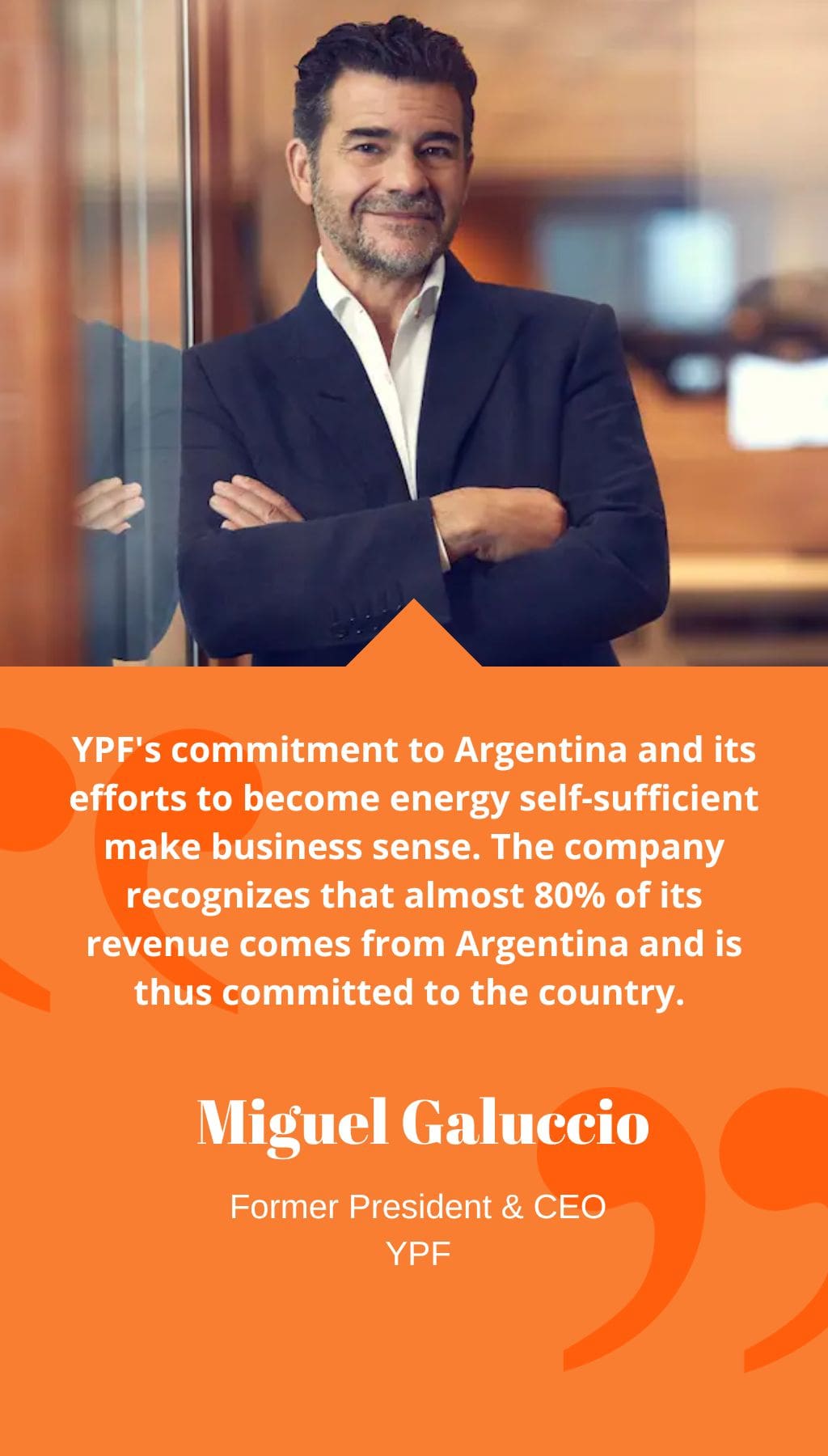
- Argentina | 7 April 2017

Can you describe the changes that have been made to YPF’s corporate culture under your leadership?
YPF is an oil company that has always focused on operational and technical excellence, aiming to build a unique company culture. Over the last three years, the company has placed an increased emphasis on improving the quality of its management and leadership, with initiatives such as creating a management school that will instill common values among all of its managers. This will reflect YPF’s unique company culture, which has evolved in several ways since the time it was under Repsol’s ownership.
Under Repsol, YPF was highly centralized around Buenos Aires and Madrid. However, today the company has become more decentralized, with regional managers having the freedom to independently take decisions and risks. Risk-taking is highly encouraged, with managers going beyond their initial instructions.
Another change in the company is its commitment to diversity and becoming an open company. The management team is highly diverse, with the chief financial officer, Daniel González, having previously worked as a mergers and acquisitions expert rather than having experience in the oil and gas industry. In recent years, YPF has acquired Apache and interests in local petrochemical companies and entered into deals with Petronas, Chevron, and Dow Chemicals. This diversity of experience has been vital to the company’s success in these endeavors.
YPF has also become more focused on fostering a national sense, which was one of the three key points in the CEO’s plan for his first 100 days. This does not mean that employees gather every morning to hoist the Argentine flag before entering Torre YPF, but rather that the company recognizes its importance in supplying Argentina’s energy needs and helping the country become energy self-sufficient.
What does “national sense” mean, and how would YPF’s business strategy change without it?
YPF’s commitment to Argentina and its efforts to become energy self-sufficient make business sense. The company recognizes that almost 80% of its revenue comes from Argentina and is thus committed to the country. However, this commitment does not mean that YPF’s decisions do not also make business sense. YPF’s commitment to the country has motivated it to undertake risky but forward-looking projects like developing Vaca Muerta, which requires taking risks. YPF could invest in foreign resources, but this would not make sense for the company’s long-term profitability. Once YPF secures local reserves, its long-term business strategy will transcend Argentina. YPF has already begun operations in Bolivia and Ecuador and is considering Mexico.
Why is personally managing YPF’s relationship with union leaders important, and how do you manage these relationships?
YPF’s relationship with unions is fundamental to improving the productivity of labor in Argentina, which will take the company to the next level. YPF’s CEO cannot delegate his relationship with the President when the national government owns 51% of the company’s shares. Personally managing the relationship with union leaders takes about an hour of the CEO’s time per day. There is a union within YPF called SUPeH, which has a strong relationship with the company. The CEO’s relationship with its leader Antonio Cassia is one of trust and friendship. When there are problems, they discuss them over coffee. The challenge in working with SUPeH and other unions is to communicate where YPF wants to go and that some of the tasks that lie ahead are easy, while others are difficult.














